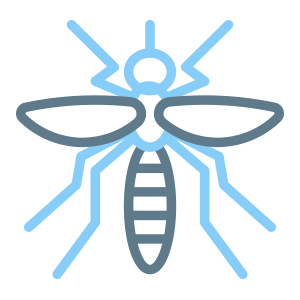Patrick Street Medical Clinic is the ideal place to begin your travel plans for travel vaccinations in Cork . We are an accredited travel vaccine and yellow fever vaccination centre and have vaccines in stock.
We will be happy to not only advise you and your family on travel vaccinations, but give you information on risks specific to your destination and planned activities whether it be a two week beach holiday in Thailand, a six month trek down the coast of South America or a business trip to Hong Kong.
Effective from the 10th of December 2024, a non-refundable deposit of €30 per person is required to complete your booking for travel vaccinations. This cost will be deducted on the day, once your travel vaccinations have been completed by our Nurse.
Please contact us on 021 427 8699 for further information.
View Our Travel Vaccine Prices

Prevent
Disease

City Centre
Location

Expert
Advice

Professional
Treatment

Online
Contact

Quick
Appointment
When should I get my vaccinations?
We would advise you to contact us ideally 6 weeks before travel as some vaccines need to be given several times before travel to be effective. However most core vaccinations can be given 2 weeks prior to travel and even if you are running short of time, it may still be worth your while vaccinating and discussing other potential risks. Remember, proof of vaccination is required for entry to some countries e.g. Meningitis ACWY for Saudi Arabia, or Yellow Fever for much of central Africa and South America.
If you wish to get the Dengue Fever vaccine, two doses are required three months apart, therefore you will need to contact us three months before your planned departure to your destination.
Please bring along with you:
- A record of any vaccinations you may have had previously
- Your travel itinerary – how long you are going and where
- A list of any medical history or current medications as they may impact on what we advise
Our Key Travel Advice
General Travel Advice
Although it is very important to prepare for travel with appropriate vaccinations, the most common health issues travelers face are travelers diarrhoea (often caused by food and water) and accidents (mopeds, traffic, diving, adventure sports, alcohol related injuries). This information may be handy to keep with you when you are traveling as a quick reference point to help keep you healthy.
- Get travel insurance and if you intend to partake in dangerous activities –declare it.
- Many illnesses such as Malaria can present weeks or even months after exposure – even if you have taken medication to prevent them. If you experience flu-like symptoms/ fever/ rashes/ nausea/ vomiting etc. after traveling abroad – contact a doctor and tell them where you have been.
- On long haul flights there is always a risk of Deep Vein Thrombosis (DVT) especially if taking the contraceptive pill. Avoid alcohol, drink plenty of water and move around the plane at regular intervals to avoid this. It may also be advisable to wear support stocking for the flight to reduce swollen legs/ankles. DVT’s can present several weeks after a flight.
Food and Water
- Always drink bottled water and check that the seal is still intact, cans of soft drink, sparkling water, tea, coffee and bottles of beer and wine if sealed are also usually safe. If travelling for an extended time or off the beaten track it may be possible to boil water or take some water purification aid such as Chlorine Dioxide or an Aquapure Filter bottle.
- Don’t have ice or herbs (i.e. mint) in your drink, keep your mouth closed in the shower and use bottled water. Avoid unpastuerized dairy products such as local ice cream as it can be a source of TB. when you brush your teeth.
- If traveling for an extended time or off the beaten track it may be possible to boil the water or take some water purification aid such as iodine.
- Avoid shellfish if possible, especially if local sewerage treatment is suspect. Always eat freshly and thoroughly cooked meat. Avoid salads and soft fruit as they are difficult to clean and are often washed in local water and eat cooked vegetables or fruit you can peel yourself. Eat at busy restaurants where food is not kept sitting around for long periods.
Insect Bites
- Get a good strong insect repellent. DEET 50% for anyone over 2 months of age including pregnant women. Available at pharmacies and some travel shops. Use insect repellent regularly day and night (the mosquitoes by night may carry Malaria but the day biting species may carry Dengue fever or Zika!) A mosquito net soaked in permethrin is also a good idea, especially if you are staying in unairconditioned accommodation. Use insect repellent on clothing, bags, shoes etc. Note that DEET can reduce effectiveness of sun screen and should be applied over sun screen.too.
- Wear light coloured long clothing and avoid perfumed products.
- If you are travelling in wooded or grassy areas, you may be at risk of ticks. It is a good idea to carry a tick removal tool for hiking/trekking holidays.
Other Animal Bites – Rabies
Even if you have had the rabies vaccine you need to be concerned if you get a bite, lick or any saliva from a warm blooded mammal on broken skin. Wash the wound immediately under water for 15 minutes then irrigate wound with iodine solution or alcohol if possible. You must then go immediately (within 24 hours if you have not had the vaccine – 2-3 days if you have) to a good medical facility and explain what has happened and whether or not you have had the rabies vaccine as the treatment will differ. Do not have the wound sutured until you have been treated for Rabies. Untreated rabies can be fatal many months or even years after it is first contracted.
Sun
You may not be aware of the power of the sun in some countries. Take sunscreen (at least factor 30+) and apply liberally throughout the day when exposed. Wear a hat and long sleeved garments and try to keep out of the sun between 10am and 3pm when it is at its strongest. If you have spent too long in the sun you may get sunstroke which is potentially dangerous. Symptoms include nausea, headaches and vomiting. Dehydration is a major concern so ensure you drink plenty of fluids and rest out of the sun. DEET insect repellent should be applied over sun screen and should be reapplied with the sun screen after swimming or excessive perspiration. It will reduce the effectiveness of the sun screen so ensure you use a high factor.
Sexual Health Precautions
- Hepatitis B and HIV along with other sexually transmitted infections are often prevalent in developing countries. Always use a condom and drink alcohol wisely. Take your own latex condoms with you as quality can be poor in some parts of the world.
- Some anti malarial medication can reduce the effectiveness of the contraceptive pill so be sure to discuss this with your doctor before you go.
- Any contact with needles, including piercings, accupuncture and tattoos can carry the risk of Hepatitis B so ensure equipment being used is adequately sterilised.
- Always be sensitive to the local culture. It may be sensible to cover up in some cultures when away from the beach.
For more information on Sexual Health Screening click HERE
Swimming
- Be aware of local conditions ie. strong currents, jellyfish, sewerage outlets etc when swimming in the sea. Chlorinated swimming pools are usually safe.
- Avoid swimming in fresh still water as it can be a haven for parasites.
- Do not mix alcohol and swimming. The combination can, and does lead to drownings.
Thing To Take With You
- Prescription medication with prescription on headed paper. Repeat prescriptions if necessary as counterfeit medication is a problem in developing countries. This includes your regular medication and malaria medication.
- DEET insect repellent (50%), mosquito net treated with Permethrin (lasts up to 25 washes). Sunscreen SPF 30+.
- Before you go, scan important travel documents such as passport, prescriptions, insurance details, driving license etc and email to yourself so they are instantly accessible wherever you go.
First Aid Kit
- Will depend on where you are going, mode of travel and for how long.
- Basic first aid supplies (bandages, gauze, antiseptic, tweezers, scissors, band aids, aloe gel for sunburn).
- Water purification tablets/filter etc.
- Antibacterial wipes for washing hands when there are no facilities after toilet or before eating, drinking etc.
- Basic suture/syringe kit to be used if you need treatment (only necessary if traveling to remote areas- may need certificate declaring contents).
- Latex condoms.
- Oral rehydration sachets (Dioralyte) and anti diarrhoeal medication (ie.loperamide – not for children under 12 or for prolonged or bloody diarrhoea)
- Antihistamine cream/tablets.
- Mild pain relief.
- Anti fungal/antibacterial ointment.
- 1% hydrocortisone cream.
- Good advice on what to take with you and travel in general can be found on the websites: CDC, Fit For Travel and DFA Travel.
Please note we request that you wait on the premises for 15 minutes post vaccination as some people can feel faint after vaccinations.
We look forward to meeting you and planning your travel.
Other Resources: Fit For Travel Website

